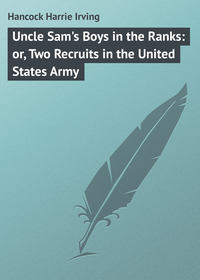 полная версия
полная версияThe Motor Boat Club off Long Island: or, A Daring Marine Game at Racing Speed
“Half a point more to port, captain,” called Jed. “Steady – so! Thank you, old fellow” – as Joe handed him the net. Eben Moddridge had now hurried to the port rail as the boat drifted up alongside the thing that Prentiss was watching. It proved to be a leather wallet, floating on the waves. So neatly did Jed pilot that, soon, he was able to lean over the rail, make a deft swoop with the net, and —
“I’ve got it!” he shouted.
Captain Tom Halstead instantly gave speed ahead through the bridge controls, trying to gain as swiftly as he could the very considerable distance that had been lost. “It’s Frank’s wallet – his own. There’s his monogram on it,” cried Eben Moddridge, his voice quaking.
“See if there is any message inside,” shouted Tom, still keeping his gaze on that hull ahead, while Joe bounded below to nurse his motor on to better performances.
Mr. Moddridge’s fingers trembled so in trying to open the soaked wallet that Jed took it from him.
“Your friend’s money,” reported Prentiss, taking out a compact mass of banknotes and passing them to Mr. Moddridge. “Here are some cards, too, and that’s all.”
“See if anything is written on any of the cards,” Tom directed.
“Nothing on any of them,” Jed quickly reported.
“It’s Frank Delavan’s wallet, though,” cried Eben Moddridge.
“And Mr. Delavan is aboard that boat, a prisoner,” returned Tom Halstead. “The best he could do was to throw the wallet overboard in the hope that we’d see it and know where to look for him. There was only a small chance of our seeing it, but Jed did, and we won. Confound ’em! They seem to be gaining on us!”
As it became more evident that the stranger was gradually pulling further ahead of the “Rocket,” Eben Moddridge’s face began to twitch, his breath coming shorter and faster.
“M-m-must we lose?” he faltered.
“No race is lost until it is finished,” Captain Tom replied, tersely.
“But you can’t overtake that boat?”
“It’s a speedier craft than ours, but I’ll follow ’em, even if they get hull down on the horizon,” Halstead retorted. “I’ll keep to the course if they beat us out of sight. I won’t give up while we’ve any gasoline left.”
The stranger was now a mile ahead. Tom figured that, in an hour, the other boat’s lead would be very likely increased by four or five miles more. Surely enough, two or three miles more were gained in the next thirty minutes. Then —
“Hurrah!” shouted Tom Halstead. “Oh, if it’s only as good as it looks!”
“What is it?” queried Eben Moddridge, brokenly, not even rising from his chair.
“See how the other craft is slowing her speed. It looks as though her engine had given out at just the right time for us.”
Indeed, the stranger seemed rapidly coming down to bare headway. Then she barely drifted. The “Rocket,” eating up the miles, swiftly gained on the other motor boat.
“It looks like a real enough break in their engine,” reported Jed, his eyes once more at the glasses. “They’re rushing about under the hood. I can see that much. They seem dreadfully bothered about the engine.”
Tom had steered the “Rocket,” by this time, within a half mile of the stranger’s pointed stern.
“Now, we’ll run down upon them!” glowed the young skipper.
“What will you do when you do get alongside?” asked Eben Moddridge, tremulously.
CHAPTER IX
PLAYING A SAILOR’S TRICK
“FIGHT, if we have to,” was Tom’s laconic reply.
“Oh, dear, I do hope that won’t be necessary,” cried Moddridge, in deeper agitation. “All quarrelsome noises and thoughts get upon my nerves to a dreadful extent.”
“We won’t fight unless they put us to it,” answered Halstead. “And, of course,” he added, with a slight smile, “we may get the worst of it. We may get ourselves fearfully whacked about.”
“Oh, dear!” groaned Moddridge again.
Nor was the nervous man one whit reassured by seeing Joe, after slowing up the engine somewhat, step up on deck bearing a couple of wrenches. As for Jed Prentiss, that youth had laid down the marine glasses to pick up a formidable looking boat-hook.
Even with her lessened speed the “Rocket” was now within less than a quarter of a mile of the racing craft.
“Confound it! Now, what does that mean?” vented Tom, disappointedly, as he beheld one of the men aboard the other craft leap to his post at the wheel. In another moment the answer came. The racing boat was moving through the water again. Every instant her propeller churned up the water a little faster.
“They’ve fixed their engine,” quavered Captain Tom. “What we’ve now got to find out is whether their motor is strong enough to get them away from us.”
For some three or four minutes the two craft remained about the same distance apart, despite the fact that Joe Dawson, who had dropped down once more into the engine room, was coaxing his motor along as skilfully as he could. Then, at last, the stranger began to draw ahead.
“The lucky scoundrels!” gritted Tom. “They’re able to go at least pretty close to their full speed. See ’em eat up the miles again!”
“At least, then, there’ll be no fight,” declared Mr. Moddridge, in a tone of relief.
“Nor will your friend and our employer have any chance to get back to his own boat at present,” retorted Tom Halstead. Ordinarily he could stand this nervous man’s agitated spells, though just now they wore upon the young skipper’s patience.
For a few miles the chase continued, the stranger gaining all the while. The two boats had been running, lately, about five miles off the Long Island coast. Now, the stranger could be seen heading much more to the northward, as though intent on making the coast.
“Jed,” directed the young skipper, “see whether you can pick up the mouth of Cookson’s Inlet ahead of the stranger.”
“There’s a break in the beach over yonder,” reported Prentiss, soon. “It doesn’t appear to be more than fifty feet wide.”
“It’s sixty-two feet,” responded Tom Halstead, who had made a hard study of all this part of the Long Island coast “And confound them if they try to go in there.”
“Why?” inquired Eben Moddridge.
“It’s mighty shallow water, the other side of the inlet,” Captain Halstead explained. “That other boat probably doesn’t draw more than two and a half feet of water. Our draught, on account of our very heavy engine, is nearer nine feet. I don’t know just how far we can follow them in that little bay. In some places the water isn’t over four feet deep.”
“Then they are not playing fairly,” muttered Moddridge, in a tone of deep disgust.
“Rascals rarely do play a fairer game than they’re obliged to do,” answered Tom, with a queer little smile. “However, all we can do is to stick to them as long as we are able.”
With two boats going at such high speed it was not long before the mouth of the inlet was made. The stranger, however, passed through about four minutes ahead of the “Rocket.”
Once in the bay the motor boat boys found themselves not far from a low, sandy island, on which were a few trees and three small cottages.
“There they are, passing the other side of the island,” hailed Jed, pointing to the top of the stranger’s single mast, visible for an instant before it disappeared behind a rise in the sandy surface of the island.
“It looks as though they’re just running around the island,” muttered Tom Halstead. “We won’t follow; we’ll meet ’em.”
Putting the “Rocket” about, the young skipper steered for the other end of the island. In a few minutes he passed around it, to discover that the strange craft had put about, and was going back the way it had come.
“I think, sir,” explained the young skipper, turning to Mr. Moddridge, “that the shortest way out of this hide-and-seek game will be to keep right after that pirate’s stern.”
“All right,” nodded Moddridge, hesitatingly. “Yet why do you call that other boat a pirate?”
“Any boat deserves the name that sails on queer business, and is even afraid to show her name-plate at her stern,” Halstead rejoined.
The stranger still led, in that race in the narrow way between the island and the main shore.
“Good enough, too,” growled Halstead, as his keen eyes noted a slight change in the color Of the water ahead. “They are leading us into the shallows. Jed, get the lead, run up to the bow and cast it in a hurry!”
Even as he gave the order, the young skipper, his hands trembling slightly from vexation, turned the speed control to lessen the “Rocket’s” headway.
Jed, poising the lead, made the neat cast of a practiced sailor, letting the flannel-tagged line pay out rapidly between his fingers. At the instant the line slackened Prentiss, half-turned toward the helm, sang drawlingly back:
“And a qua-arter, two!”
That signified two and a quarter fathoms, or thirteen and a half feet of water under the bottom of the cruiser, which drew about nine feet.
Rapidly hauling in, while the “Rocket” now hardly more than crawled along in these shallows, Prentiss heaved the lead once more.
“And a scant – two!” he reported. Joe Dawson, leaping to the deck, ranged up alongside of Jed. The water had a shallower look ahead.
“A-a-and three-qua-arters – one!” came the hail from the leadsman.
Ten and a half feet meant a foot and a half to spare under the deepest point of the cruiser’s keel.
Once more Jed poised the lead for the heave, but Joe, taking a more knowing look, shouted back:
“Reverse her, captain, or you’ll poke her nose in the mud!”
Instantly Captain Halstead’s hand flew to the reversing lever. Slowly the motor boat stole backward. The stranger had passed around to the seaward side of the little island, and was making for the inlet.
“They’re playing with us!” grumbled Skipper Tom. “The fun’s all theirs, for they’ve got the faster craft.”
Just as soon as the “Rocket” had once more five feet of water to spare under her hull Halstead decided to head about, the way he had come, and put on all speed for the inlet. Yet, so expensive of time was this proceeding that, when the Delavan boat once more glided through the inlet, the stranger was three miles out to sea, heading south.
“That fellow must be laughing at us,” faltered Eben Moddridge.
“Of course he is,” flared Tom Halstead. “And I could grind my teeth, if that sort of work would do any good.”
“W-w-what can we do?” stammered the nervous one.
“Only keep up the chase until one or the other breaks down, or runs out of gasoline,” replied the young skipper, doggedly.
For almost an hour more the boats continued to head south. All but the high parts of Long Island were below the horizon. Yet Halstead, calling Jed to the wheel, though still directing the course, believed that he was gaining on the other boat, even if very slowly.
“We’ve gasoline enough aboard,” the young skipper explained to the nervous man, “to keep running for twenty-four hours yet. I hope that other fellow hasn’t.”
“B-b-b-but see here,” quavered Moddridge, a new alarm dawning upon his mind, “if that other crowd should let us get alongside, and th-then s-s-s-shoot at us – it would be awful!”
“That’s a chance we’ve simply got to take,” replied Tom Halstead, coolly, “if we’re to try to reach Mr. Delavan and get him back aboard his own boat.”
“I – I – I couldn’t s-s-stand anything of that sort!” almost screamed the nervous one.
“Then will you get off the boat, sir, and walk?” inquired the young skipper, with perhaps pardonable irritation. This exhibition of weak-kneed manhood made him indignant.
Erelong the stranger was a good twenty miles south of the nearest point on the Long Island coast. Both boats had traveled fast over the gently-rolling sea. The conditions would have been ideal for a race, had the stakes been less important.
“Maybe their gasoline is running so low that those fellows are ready to be reasonable,” grinned Joe Dawson, turning from the stand he had taken near the bow. It could be seen, now, that the stranger was slowing down her speed. Presently she was lying to.
“That must be a confession of a tank low with gasoline,” cried Captain Tom, jubilantly, hastening forward with the glasses. “Steer straight for her, to come up on the port side, Jed.”
Seeing Joe again disappear below, to reappear with a pair of ugly-looking wrenches, Eben Moddridge turned very pale, and next hastened, shakily, to the steps leading down to the after deck. Thence he vanished into the cabin.
“Say,” uttered Joe, disdainfully, “I wish I had his fighting blood!”
Still the stranger lay to, only two men showing in her cockpit. As the “Rocket” came much closer to her possible prey Tom Halstead again took the wheel, while Jed stood close to where his prized boat-hook lay. Tom shut off most of the speed as he ran in closer to port of the stranger. The two men visible aboard the other boat were now standing by the rail, looking curiously enough at the motor boat boys.
“‘Rocket’ ahoy!” hailed one of them, as Tom manœuvred his craft within easy talking-distance of the other. “Have you been following us?”
“Some!” admitted Halstead, dryly.
“Why!”
“To see whom you have aboard.”
“Only us two boat-handlers on board,” replied one of the pair.
“Tell that to the mermaids,” retorted Captain Tom, grimly.
“Don’t you believe us?” demanded the same speaker, the larger of the rough-looking seafaring pair.
“I’m not very good at believing,” was the younger skipper’s reply.
“Then wait until we get slowly under way, and you can come up alongside. I guess you can board us, on this gentle sea, without scraping either hull,” proposed the speaker aboard the racer.
That offer, made in seeming good faith, almost staggered Tom Halstead for the moment. Why the stranger should run away for hours, then suddenly agree to be boarded, was not at once apparent.
“Unless they want to get one of us aboard, or want to try the mighty risky trick of capturing us on the high seas,” reflected the young skipper. “However, all we’re here for is to find and rescue Mr. Delavan. We’ve simply got to try to do that.”
So he nodded, allowed his boat to fall away, then come up alongside the racing boat, now under slow headway.
As the two hulls bumped slightly, Jed Prentiss made fast to the other craft’s rail with his boat-hook. Tom Halstead, with a wrench dropped into a hip pocket out of sight, leaped over the other boat’s rail down into the cockpit.
“You spoke about someone being aboard here?” quizzed the larger of the two strangers. “You can go ahead and find out your mistake. Open anything you want; look anywhere you please.”
Halstead’s first swift look in under the hood showed him only the motor housed there. While Joe Dawson and Jed Prentiss watched keenly, suspiciously, from the “Rocket’s” rail, the young skipper searched minutely under that hood deck. There was not a human being there, nor any trace of late occupancy by any. There were lockers. Tom raised the lid of every one. He might, in his dismayed wonder, have explored the gasoline tank, had he not known that the opening was too small to permit the entrance of a man’s body.
“Through in there? Satisfied?” called the larger of the two men, half-mockingly. “There are two lockers out here, and an after compartment out here in the cockpit.”
As soon as he was satisfied that there was no other possible place under the hood, Halstead accepted the invitation to make a search of the cockpit lockers and storage spaces. Yet it was all quite in vain.
Suddenly, however, the young skipper straightened himself, glaring down at a straight, not very distinct line that ran the length of the cockpit, even extending under the hood. As he looked swiftly up, he encountered the mocking gazes of the two boat handlers.
“That was a slick trick,” Captain Tom admitted, speaking dryly, though with an effort. “That line was made by the dirty keel of a small boat. In Cookson’s Bay, while hidden from us by that little island, you put the small boat over the side, and some of your passengers went ashore. Then you decoyed us all this distance out to sea to have the joy of laughing at us.”
“Blessed if I can guess what the lad means, friend,” said one of the rough pair to the other.
But Captain Tom Halstead, as he leaped back aboard the “Rocket,” and turned to them with flashing eyes, retorted gamely:
“I’m planning to have the pleasure, mighty soon, of showing you the value of the last laugh!”
CHAPTER X
THE MONEY STORM BREAKS LOOSE
AS soon as the “Rocket” had fallen away from the mocking strangers and was heading back at nearly full speed for the Long Island coast, Eben Moddridge came almost totteringly on deck.
“Poor Frank Delavan wasn’t aboard that other boat,” he groaned.
“No,” answered Halstead, trying hard to keep his disapproval of the other’s cowardice from sounding in his voice.
“Then, good heavens! We must get back to East Hampton without loss of a moment,” cried the owner’s friend.
“Don’t you think we’ll do a lot better to hustle back to Cookson’s Bay?” demanded the young skipper. “We all of us know, as well as we need to, that Mr. Delavan was aboard that racing boat this morning, so we must agree that Mr. Delavan was carried ashore while that other craft had the island between us and them. We’re out to find Mr. Delavan, aren’t we? If we are, sir, the trail starts from Cookson’s Bay.”
“But there are other matters you don’t understand,” replied Moddridge, nervously. “Both Delavan and I have interests at work in Wall Street. Those interests involve many millions of dollars. While I was hoping every minute to come up with Frank Delavan, the chase seemed to me to be the main thing. But I should have been in East Hampton hours ago, to answer frantic appeals for instructions that must have been coming in over the long distance telephone.”
“Then do you instruct me, sir, to head for East Hampton, and leave Mr. Delavan to take his chances in the hands of rascals?”
“Don’t – don’t put it in that way,” begged Mr. Moddridge, shivering.
“Unfortunately, sir, I don’t see any other way to put the question,” young Halstead answered.
Eben Moddridge wavered, thinking it all over in an evident frenzy. While he was thus pondering Captain Tom was heading straight in for where he knew Cookson’s Inlet to be.
“It’s – it’s – bad either way,” Moddridge finally confessed. “If I delay in reaching the telephone Frank and I may lose millions through some unfortunate turn in Wall Street. And, on the other hand, if poor Frank has vanished, perhaps never to turn up again, he and I may both be ruined in the money world.”
“As between losing some millions, and all,” spoke Tom, as judicially as he could, “I should say it would be better to risk some of the money and keep on after Mr. Delavan himself.”
“If that’s the way it appears to you, then do so,” replied Eben Moddridge, slowly, hesitatingly. “Oh, dear, I simply can’t think when I am so nervous.”
“This is a funny sort of an associate to take into a big money deal,” thought Halstead, wonderingly. The young skipper discovered, later, that Moddridge was a power in Wall Street simply because he had inherited more millions than he was capable of handling. He was valuable when men wanted more money for financial operations than they themselves controlled. Moddridge was in the present big Delavan deals simply because Moddridge had discovered that he could always trust Mr. Delavan.
So Tom headed for Cookson’s Bay, making that shallow little body of water in less than an hour. Another hour was spent in lowering the port boat and in rowing Moddridge both to the little island and to the main shore. It was a sparsely settled region. Only one of the cottages on the little island was occupied, and that only by a bachelor who admitted that he had been asleep at the time when the two motor boats had dodged about the island. He aided, however, in searching the other two cottages, but no sign was found of Mr. Delavan or of his probable captors. The search was continued on the main shore, with no better results.
“Now, we simply must get back to East Hampton,” urged Moddridge, and Halstead was reluctantly of the same opinion.
“If Frank can’t be found soon,” chattered the nervous one, as the “Rocket” headed toward her pier at East Hampton, “and if the news becomes public, then every stock he is heavily interested in will go away down on the Stock Exchange.”
“Why?” asked Tom Halstead.
“Why, people will think there’s something queer about the disappearance,” Moddridge explained. “Take the P. & Y. Railroad, for instance. Its capital is eighty million dollars. Delavan owns fifteen million of that himself. He’s the president, biggest stockholder, and the virtual czar of that railroad. If Frank can’t be found, what will folks be apt to think? Why, simply that he has been guilty of criminally mismanaging the railroad, for his own profit, and that now he has fled to some foreign country to hide away from the American law. P. & Y. stock will take a fearful drop.”
“That won’t happen, all in a day, will it?” questioned Captain Tom.
“It might. It will be sure to happen within a very few days, if Frank doesn’t show up again. Wall Street is the most sensitive place in the world. Let a breath of suspicion blow against a certain stock, and that stock drops and drops, until perhaps it goes down out of sight. Everyone who has his whole fortune invested in that stock may be ruined by the smash. If the P. & Y. stock goes down, it will knock Frank’s deals and mine into a cocked hat.”
“Why?” asked Tom, wonderingly.
“Why?” repeated Eben Moddridge, shiveringly. “Why, I’ve told you that Frank holds fifteen millions of P. & Y. stock. I hold five millions myself. Frank told you, yesterday, that we were plunging in Steel and other allied stocks that Mr. Gordon influences heavily. Steel and those other stocks are going to work up and down, like a see-saw, for the next few days. To raise the funds for our operations Frank and I have been pledging our P. & Y. stock, which stands at 102. But suppose Delavan can’t be found, and P. & Y. drops to forty – or even thirty?” gasped Eben Moddridge. “What would happen then?”
“Well, what would happen?” questioned Tom Halstead, to whom the whole vast Wall Street game was a great puzzle.
“Why, if P. & Y. tumbles like that,” continued Eben Moddridge, “the great banking houses that have been advancing us money on P. & Y. stock to play with Steel and allied stocks will be forced to call in their loans in order to protect themselves. Frank Delavan and I are pledged as heavily as we possibly can be. We couldn’t raise five million dollars more between us. So, if the bottom drops out of the P. & Y. stock Delavan and myself stand to be wiped off the board in all our deals – ruined!”
The last word came from Moddridge in a sobbing gasp. He was clutching at the rail as the “Rocket” moved in nearer to her pier.
“Halstead,” he continued soon, “as quickly as we land, I want you to get a carriage and rush to the telephone office with me. I’m so excited I feel as though I’d fall over in a faint. You must go with me – remain with me until this fearful ordeal is over.”
Half a dozen well-dressed, alert-looking young men who stood on the pier seemed to be greatly interested in the “Rocket” as that boat was berthed. Jed was at the wheel as Captain Tom stood by the rail, ready to leap ashore.
“Mr. Francis Delavan aboard?” hailed one of the young men, just as the young skipper’s feet touched the pier.
“Why do you want to know?” Halstead cross-questioned.
“I’m from the New York ‘Herald’,” replied the young man. “I am here to interview Mr. Delavan.”
“I’m from the ‘World’,” added another young man. Halstead at once understood that this group was made up of reporters.
“Mr. Delavan didn’t go out with us this morning,” replied Captain Tom, while Eben Moddridge surveyed the reporters, uneasily. Seeing a cab up the road, Halstead signaled it vigorously.
“Where is Mr. Delavan?” demanded the “World” representative.
“That’s Mr. Delavan’s business. I can’t tell you,” replied Tom, a bit stiffly.
“Is his friend, Mr. Moddridge, aboard? Is that Mr. Moddridge?” asked another of the reporters. The nervous man, under the concentrated gaze of six reporters, became more nervous than ever.
“Gentlemen,” went on Halstead, hurriedly, drawing out his watch just as the vehicle rolled down to the pier and stopped, “it’s twenty-five minutes of three, and the Stock Exchange in New York closes at three o’clock. That is Mr. Moddridge on board, but he is in a rush to reach the telephone office, and he can’t lose even a second until he has talked with New York.”









